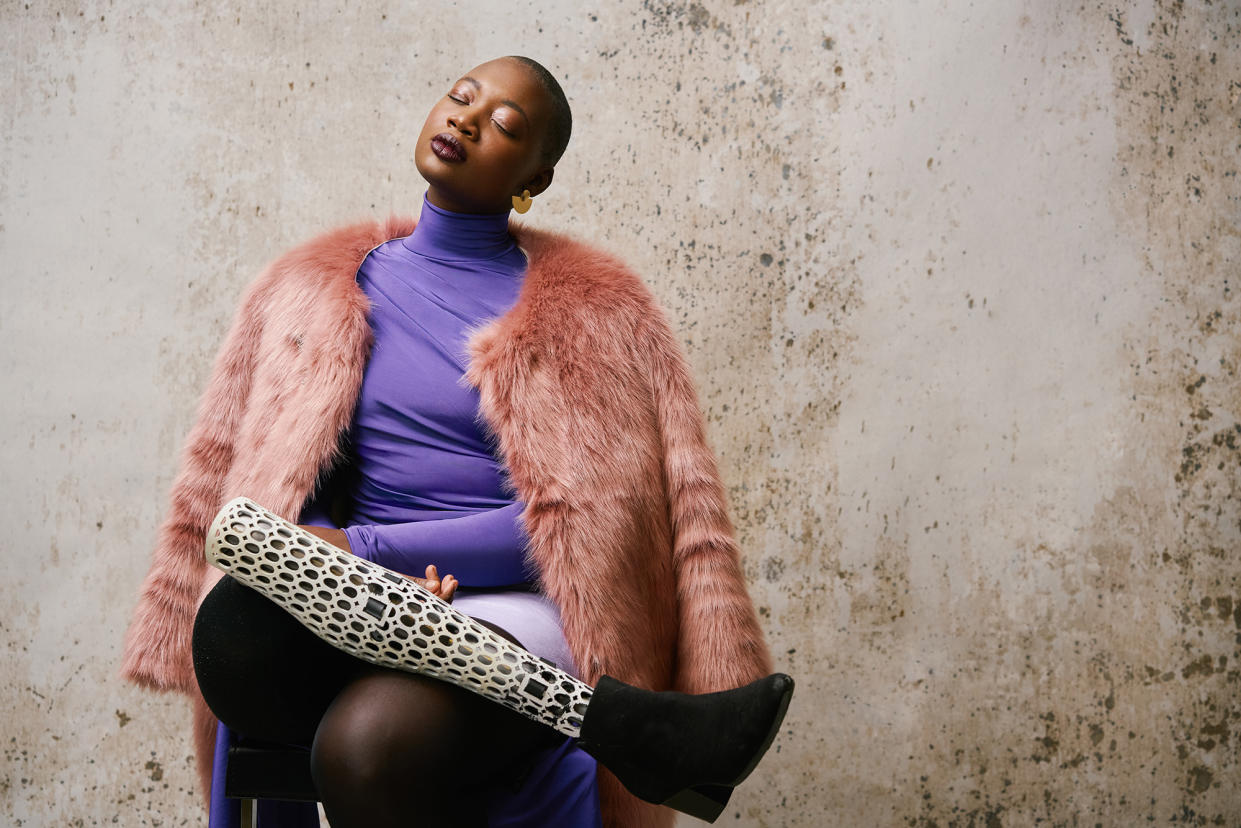Disability activist and model on deciding to expose her prosthesis: 'I thought, wouldn't life be easier if I didn't have to hide?'

Accessible Beauty is a mini-series of profiles that Yahoo Lifestyle will run during the week of Dec. 3 in the spirit of the United Nations’ International Day of Persons With Disabilities. The series focuses on the lives of six empowering individuals, and today we feature one of them, Mama Cax, 28, a blogger, activist, and motivational speaker, who lost part of her leg to cancer at age 14.
How she found self-confidence after her amputation: It’s hard to pinpoint the exact moment I decided to even expose my prosthetic, but all throughout college, I had it covered. It wasn’t until after college that, with Instagram and blogging, I connected with other girls who were amputees. I thought, wouldn’t life just be easier if I accepted this and didn’t have to hide it? At the beginning, it was really hard, because it was a lot of stares, and at that point, I didn’t have the stylish cover [from a line of fashion-forward prosthetic covers marketed by Alleles, in Canada]. I would get a lot of stares and rude comments, and so it was a long and painful road to get where I am now. But I think it got to the point where my confidence was just showing, and people were afraid to ask questions that would be perceived as stupid.
What makes her feel beautiful: Hydrated skin. When I feel the most beautiful is late night, when I’m getting ready for bed — when I take off all the makeup, do a nice facial to hydrate my skin, and get in bed with some snacks.

Why media representation matters: I think it’s very important whenever you’re able to see yourself represented, in media in general, and for me, the interesting thing is I’m at the intersection of so many marginalized groups: I’m a woman, I’m also a black woman, I’m also a woman with a disability. And a lot of times, people will talk about inclusion or diversity, and I see women, I see black women, but a lot of times I don’t see disability. So in spaces where there are a lot of women, it always feels like there’s something missing. Sometimes I get invited to an event, and the venue is not even accessible. I always say, “If you’re having an event and your space is not accessible, then your movement is not inclusive.”
Read more from Yahoo Lifestyle:
Follow us on Instagram, Facebook, and Twitter for nonstop inspiration delivered fresh to your feed, every day.


